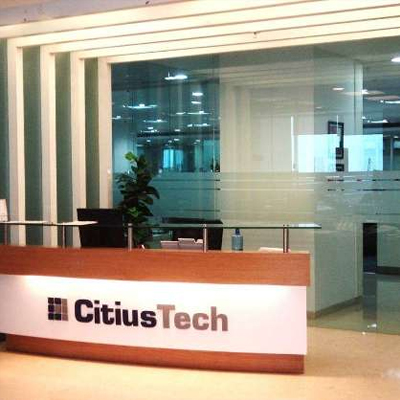Accelerating Generative AI Adoption through an Interconnected and Open Ecosystem

The meteoric ascent of generative AI has engendered a profound impact on companies and consumers globally. Thankfully, the initial maelstrom of fascination and apprehension has evolved into more substantive dialogues, centred on constructing an AI ecosystem of universal applicability.
A proliferation of applications and frameworks, emanating from esteemed entities like NVIDIA, Hugging Face, and Anyscale, currently underpins the foundation for a more egalitarian deployment of AI and machine learning across diverse domains. The prospective dividends are colossal. McKinsey posits that generative AI has the potential to augment the global economy by a staggering $4.4 trillion annually.
While the prospect beckons every enterprise, active participation in the cultivation and utilisation of novel AI and ML platforms necessitates resolute collaboration and heightened engagement amongst enterprise leaders. Such concerted efforts are indispensable to steer their customers' AI odysseys towards fruition.
This discourse delves into the collaborative efforts required to foster an open and interconnected ecosystem, concurrently optimising the adoption of AI and ML within the enterprise landscape.
Pioneering the Development of AI and ML Systems for Sustainable Growth
In the wake of the meteoric rise of generative AI in the past year, we find ourselves at the threshold of this transformative journey. The prudent, secure, and regulated integration of AI and ML holds the promise of delivering superior outcomes for customers while fostering sustainable growth for organisations navigating these dynamic times.
For CIOs and other influential stakeholders aspiring to cultivate an open AI ecosystem through innovative collaborations, several pivotal steps warrant consideration:
Championing Private AI:
A paramount question looming today pertains to the acceleration of responsible AI and ML utilisation within organizations. Private AI emerges as a strategic approach, allowing companies to harmonise the business benefits of AI with the pragmatic imperatives of privacy and compliance. VMware's recent collaboration with NVIDIA exemplifies this approach, presenting a turnkey solution comprising integrated infrastructure and AI tools. This facilitates seamless deployment across a consistently hybrid cloud environment. Leveraging IBM watsonx AI and data platform on VMware Private AI enables customers to unlock generative AI use cases. Simultaneously, the collaboration between VMware and Intel empowers customers to employ existing general-purpose infrastructure and open-source software, simplifying the intricate process of building and deploying AI models.
Establishing Universal AI Standards:
Within each industry, the promulgation of standards, ethical frameworks, and judicious regulations serves as an indispensable linchpin for implementing checks and balances. UNESCO, a venerable institution in shaping ethical guidelines for science and technology, has taken a momentous stride by publishing its inaugural "Recommendations on the Ethics of Artificial Intelligence" this year. This seminal publication establishes a foundational tone for enterprises. To cultivate a more open and democratic generative AI ecosystem, stakeholders must fastidiously formulate unequivocal ethical principles. These principles should robustly fortify fairness, privacy, accountability, intellectual property protection, and transparency in training data.
Fostering Open Collaboration:
As companies globally embark on the experimentation phase with AI foundation models and generative AI tools, the ethos of disseminating data and coding techniques emerges as a potent catalyst for collective advancement. A recent illustrative example from our team involves the meticulous refinement of Hugging Face's SafeCoder for our GitLab code, showcasing its inherent adaptability to VMware's coding style. Such collaborative endeavours exemplify a synergistic approach towards building consensus and achieving loftier heights collectively.
In steering the trajectory of AI and ML, enterprises find themselves at a pivotal juncture where sagacious strategies, ethical considerations, and collaborative ventures converge to chart a transformative trajectory towards sustainable growth.
Navigating Challenges and Cultivating Trust in the Realm of AI
Generative AI tools, encompassing expansive language models and computer vision capabilities, serve as potent instruments, empowering enterprises to amplify innovation and productivity, thereby enhancing the quality of products and services rendered.
However, amid the promises of advancement, legitimate concerns persist. Our team discerns three pivotal challenges that enterprises must confront with unwavering resolve:
Architecting Cost-Effective AI Models:
In the current landscape, the training of generative AI models is not only a complex endeavour but also an exorbitantly expensive one. The impetus for enterprises to develop and operate bespoke AI models at a more economically viable scale is undeniable. For instance, the training cost of a colossal language model like GPT-3 can surpass several million pounds, as reported by the deep learning company Lambda. Faced with the escalating costs of AI, many CIOs are turning to open-source software to construct more modest yet task-optimised AI models. Novel solutions that proffer heightened flexibility and choice democratise AI innovation, rendering it more accessible to mainstream enterprises and visionary entrepreneurs.
Democratising AI Expertise:
The exigent demand for specialised talent to construct successful AI models poses a formidable challenge, with a need for more skilled professionals in this domain. Conversations with CEOs and CIOs underscore the desire for nimble adaptability to emergent innovations without being tethered to singular arrangements, a feat complicated by the limited pool of tech professionals specialising in AI models. Addressing this skills gap necessitates a radical simplification of the AI model creation and training process. Reference architectures furnish a blueprint and actionable pathway for enterprises devoid of in-house expertise, facilitating the construction of AI solutions from the ground up.
Transitioning from Risk to Trust:
Despite the strides made, today's generative AI models still harbour notable risks with the potential to detrimentally impact customers, employees, and a company's reputation and revenue. These risks span security breaches, intellectual property violations, and legal ramifications. Collaborative endeavours have emerged, with organisations banding together to address privacy, data integrity, and bias concerns. The open-source community, for instance, pioneers innovative approaches to assist businesses in the responsible training and deployment of AI models. These collective efforts are instrumental in fostering greater trust in the utilisation of generative AI for business expansion.
Forging a Resilient AI Ecosystem through Collaborative Endeavours
Enterprises possess myriad avenues to assert greater control over the transformative disruptions instigated by AI, and the most efficacious approach is one of collective action. A symbiotic collaboration spanning the public and private sectors, from corporate giants to small-scale enterprises, involving consumers and employees alike, charts a trajectory towards comprehensive ownership. As the landscape of generative AI evolves, so will the contours of rules and regulations. Industry stakeholders stand at a juncture where laying a stable foundation today serves the collective interests of all.
.png)







